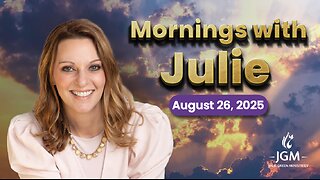Premium Only Content

#315 Certificates of Deposit (CDs)
Certificates of Deposit (CDs) are financial products offered by banks and credit unions that allow individuals to invest their money for a fixed period at a fixed interest rate. CDs are a form of time deposit, which means that the money is locked in for a specific term, and in return, the investor receives a higher interest rate compared to a regular savings account. Here are some key features of CDs:
Fixed Term: CDs have a predetermined maturity date. This can range from a few months to several years, with longer-term CDs typically offering higher interest rates.
Fixed Interest Rate: The interest rate on a CD is fixed for the entire term. This means your money will earn a consistent rate of interest regardless of changes in market interest rates.
Low Risk: CDs are generally considered a low-risk investment because they are typically insured by the FDIC (Federal Deposit Insurance Corporation) for banks or the NCUA (National Credit Union Administration) for credit unions, up to a certain limit. This insurance ensures that your principal is safe even if the institution goes out of business.
Lack of Liquidity: Once you invest in a CD, your money is locked in until the maturity date. If you need to withdraw your funds before the CD matures, you may incur penalties, and you will likely receive less interest.
Interest Payment Options: Interest on CDs can be paid in different ways. Some CDs pay interest monthly, while others may pay it quarterly or annually. You can also choose to have the interest added to the principal or paid to you separately.
Callable CDs: Some banks offer callable CDs, which give them the option to recall the CD before its maturity date. This can affect your expected return, and callable CDs often come with slightly higher interest rates to compensate for the uncertainty.
Jumbo CDs: These are CDs with very high minimum deposit requirements, often exceeding $100,000. They usually offer higher interest rates than regular CDs.
Brokered CDs: These are CDs purchased through brokerage firms rather than directly from a bank. They offer a wider variety of terms and issuers but may have slightly higher fees.
CDs can be a good choice for people who want to earn a guaranteed return on their savings while protecting their principal. However, they may not be the best option if you need easy access to your money or want to take advantage of potentially higher returns from other investments like stocks or bonds. Before investing in a CD, it's essential to compare the terms and interest rates offered by different institutions to find the best option for your financial goals.
www.antharas.co.uk/ companies website or top book distributors!
-
 8:44
8:44
AV
1 year ago#1142 Press release - Guide to innovationin the NHS
10 -
 LIVE
LIVE
JuicyJohns
2 hours ago $0.23 earned🟢#1 REBIRTH PLAYER 10.2+ KD🟢
128 watching -
 LIVE
LIVE
Law&Crime
1 hour ago $0.63 earnedLIVE: Adelson Matriarch Murder Trial — FL v. Donna Adelson — Day 3
167 watching -
 LIVE
LIVE
Major League Fishing
4 days agoLIVE! - Fishing Clash Team Series: Challenge Cup - Day 3
211 watching -
 27:39
27:39
Crypto.com
1 hour ago2025 Live AMA with Kris Marszalek, Co-Founder & CEO of Crypto.com
5.35K -
 LIVE
LIVE
Surviving The Survivor: #BestGuests in True Crime
1 hour agoCourt Stream: Donna Adelson Trial DAY 3 of Testimony
83 watching -
 LIVE
LIVE
Wendy Bell Radio
6 hours agoWhat Hill Will Democrats Choose To Die On?
7,950 watching -
 LIVE
LIVE
LFA TV
4 hours agoLFA TV ALL DAY STREAM - TUESDAY 8/26/25
5,065 watching -
 1:15:15
1:15:15
JULIE GREEN MINISTRIES
3 hours agoTHE CIA HAS BEEN A GIANT IN THIS LAND THAT WILL BE TAKEN OUT
91.4K139 -
 3:58:26
3:58:26
The Bubba Army
1 day agoBURN The FLAG, Go to JAIL! - Bubba the Love Sponge® Show | 8/26/25
68.5K29